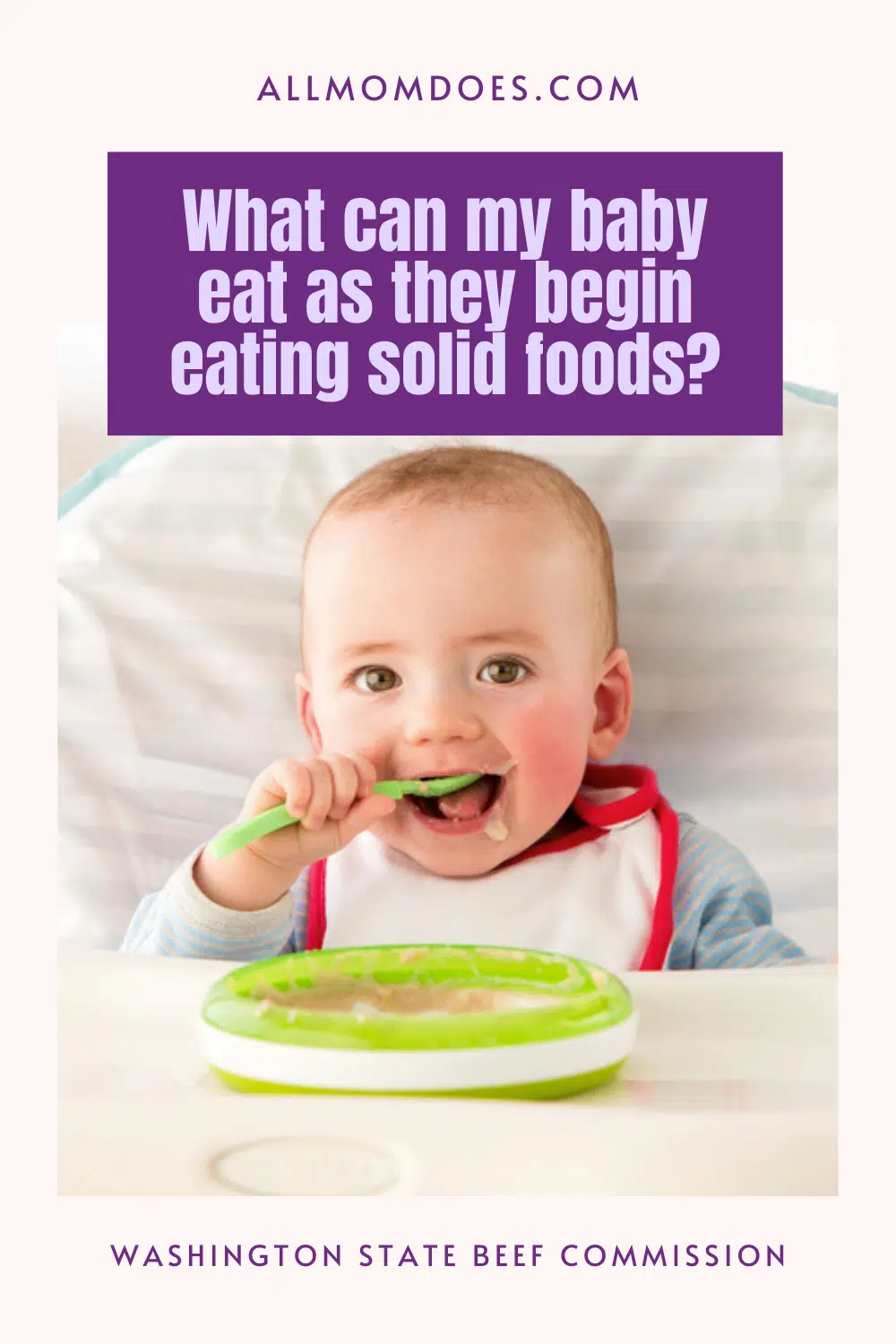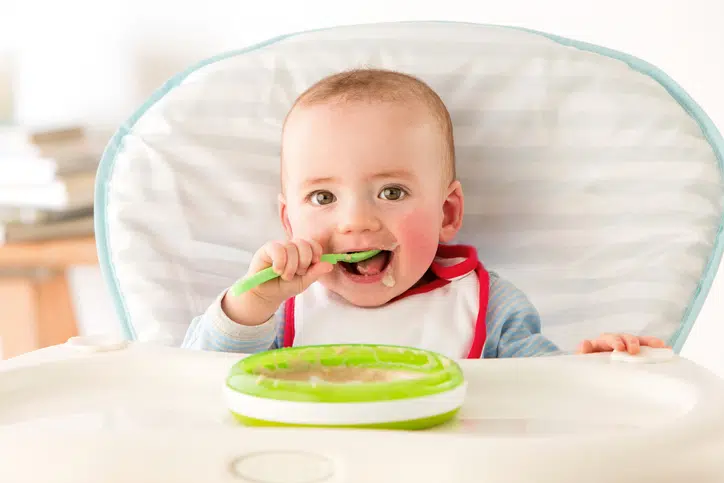That first bite of solid foods is a huge milestone in a child’s life. But it’s far more than just an opportunity for a hilarious reaction video – it’s the beginning of an important new stage in their development.
The message to parents up until now has always been that those first few months of feeding were for skill development only: learning to chew, practicing moving food to the back of the mouth to swallow, developing fine motor skills to self-feed. Nutrition didn’t matter.
Research has now proven otherwise.
This post is sponsored by the Washington State Beef Commission.
Turns out, every bite counts when it comes to your baby’s nutrition. In fact, the American Academy of Pediatrics, WIC, and the newly updated Dietary Guidelines for Americans all agree that foods rich in iron and zinc (like beef) are essential in the diets of infants and toddlers – especially those that are breastfed. So while your baby will still be getting most of their nutrition during the transitional phase from breastmilk or formula, solids are a critical source of nutrients. Just because solids are complementary doesn’t mean they’re unnecessary. And because their little bellies are so small and they eat so little, it’s important to make sure each bite is packed with nutrition.
Consider these stats:
- By around 6 months of age, an infant’s iron stores from birth are depleted and its presence in breastmilk is no longer sufficient to meet their needs.
- One in five infants is iron-deficient.
- Optimal zinc intake is crucial for physical and cognitive development, and also boosts immunity.
- Iron, zinc, and choline are essential for healthy brain development in babies.
- These three nutrients are found in beef, but less than 10% of babies eat meat in their first 9 months – and less than 1% eat beef.
- Beef offers twice as much iron as turkey, chicken, or pork.
- Zinc is more readily absorbed by the body from beef than plant-based sources.
This lack of animal-based protein in babies’ diets isn’t a surprise. Standard advice for transitioning to solids has been to start with cereal, move to fruits and veggies, and then graduate to dishes containing meats. I mean, even the baby food jars are labeled to keep you on this track!
But here’s the secret: those guidelines have nothing to do with your baby’s actual nutritional needs. It’s mostly about how the baby food companies process the food, and how appropriate the thickness and texture are for your baby based on age and development. You can actually feed your baby foods in any order – as long as you prepare and serve them safely and properly. The American Academy of Pediatrics agrees – there is no medical evidence that introducing foods in a particular order has particular advantages, and they recommend parents include meat in their babies’ diets.
When Can My Baby Start Solids?
Babies should start solids between 4-6 months. Babies are developmentally ready for solids when they:
- can sit up (with or without support)
- have good head control
- seem interested in food
- no longer spit out solids
What Can My Baby Eat When They Start Solids?
The short answer is: whatever you want them to! Start with watery pureed versions of single-ingredient foods, but don’t feel limited to traditional peas, pears, and sweet potatoes. Beef and other proteins can be pureed with water to give your baby access to different flavors and textures from the earliest introduction of foods. Avoid common allergens, but if foods have been easily tolerated you can incorporate appropriately-textured dairy products, nuts, and cooked eggs or fish by the end of the first year. Doing so may actually prevent food allergies in the future!
Mom, nutritional science has given you freedom. Stop scouring the internet for the perfect solid-food introduction schedule. Feed your baby a wide variety of foods early on – and that includes meat. You’re obviously not going to give them a big hunk of steak, but that doesn’t mean you can’t put a few bite-sized pieces in the food processor with water, breastmilk, formula, or infant cereal to turn it into a developmentally appropriate – and safe – first food.
And of course, if you have questions about starting solid foods, always consult your physician or health care provider first.
PIN THIS!



















